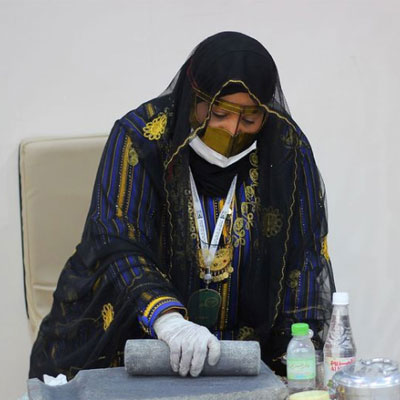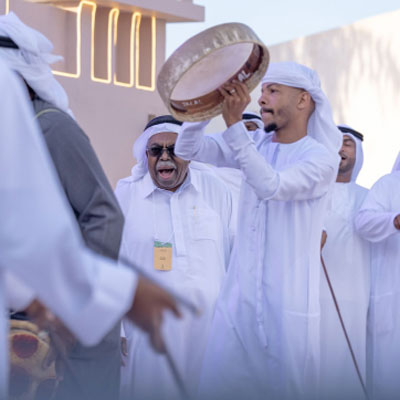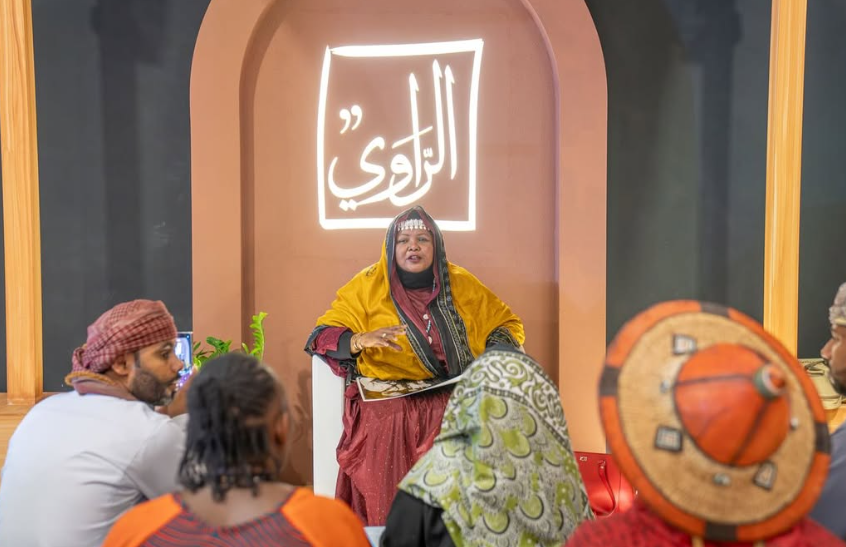Al-Rawi Forum 2025: Workshops and Live Narratives from 50 Countries.
As part of the 25th edition of the Sharjah International Narrator Forum, organized by the Sharjah Institute for Heritage and celebrating its silver jubilee under the theme “Tales of the Traveler”, the first day witnessed a series of dialogue and intellectual sessions that shed light on the role of narrative, memory, and language in the experiences of travelers throughout history. The day also featured storytelling performances by narrators from various Arab countries.
Journey Between Memory and Art
The forum’s first session hosted Mohammed Al Murr, Chairman of the Mohammed bin Rashid Al Maktoum Knowledge Foundation, in a talk titled “A Journey Through Memory and Narrative”. He spoke about his extensive experience in travel literature, emphasizing that what he presents is not merely description or touristic narrative, but a reflection of his personal impressions and human interactions with places.
He explained that his writing style is closer to personal diaries, recording his thoughts and emotional states—because high-quality travel literature blends autobiography with storytelling.
He also noted that photography is a parallel art to writing, though it does not replace it. He approaches photography with passion, grounded in respect for people, and refrains from photographing individuals without their consent.
Literary Narrative and Digital Imagery
Al Murr highlighted that the same location can inspire different interpretations depending on the writer’s background. He does not embark on his journeys with preconceived ideas, but rather allows himself the freedom to be surprised and to empathize with other cultures.
In comparing travel literature to visual content creation on digital platforms, he noted that most content creators merely offer superficial visuals of places, while only a few add cultural value that reflects the heritage and arts of nations. He stressed that travel literature is a cultural practice expressing a humanistic and aesthetic vision, calling on the younger generation to expand their horizons through travel—beyond restaurants and cafés—toward discovering civilizations and human landmarks.
At the end of the session, Al Murr signed his three travel books: “Around the World in 22 Days”, “Beautiful Zanzibar”, and “Madagascar: Coasts and Boats”.
Arabic and Dhivehi Languages
In the forum’s second session, Adam Naseer, Minister of Culture of the Republic of Maldives, shed light on the deep influence of the Arabic language on the formation of his country’s native language, Dhivehi. He explained that Arab heritage played a pivotal role in shaping Dhivehi vocabulary and grammar, which remain in use today—reflecting a cultural connection that spans centuries between the Maldives and the Arab world.
Addressing an audience of writers, scholars, and cultural enthusiasts, he outlined the historical interactions between the Maldives and Arab nations, noting that trade, religion, and travel introduced many Arabic words and expressions into Dhivehi. He stated:
“Arabic is not just a religious language; it is a bridge connecting our culture and traditions with the broader Arab heritage.”
He called on the younger generation to preserve this linguistic heritage.
The minister also affirmed the Maldives' commitment to promoting cultural exchange and dialogue, emphasizing the role of language and storytelling in fostering understanding between diverse communities. He added that the forum reinforces Sharjah’s status as a global center for literature, storytelling, and cultural heritage preservation—continuing its tradition of building intellectual bridges between cultures.




